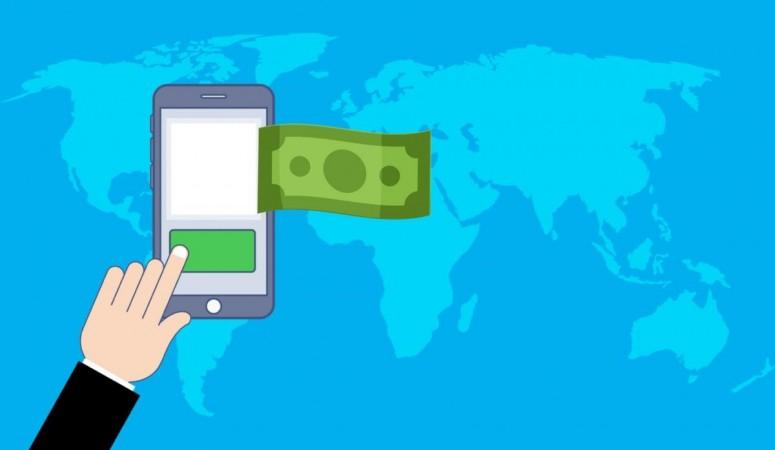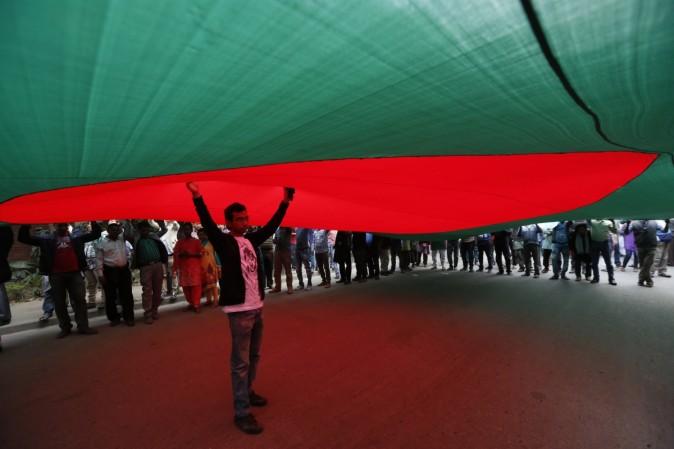The Government of Bangladesh under the present Prime Minister Ms Sheikh Hasina has undertaken numerous policy initiatives to ensure steady growth of GDP, introduce financial sector reforms and give a push to further digitization in the financial sector, improving communication infrastructure and services and enhancing the penetration of mobiles and net services to reach out to the under banked people in Bangladesh.
Asian Development Bank (ADB) President Masatsugu Asakawa on 14 Mar 2023 stated that "I have witnessed the many ways Bangladesh has been transformed through steady and inclusive economic growth with vibrant private sector engagement over the past decade and a half," he commended Bangladesh's economic and social development, particularly over the last decade and a half. Between 2013 and 2022, Bangladesh's gross domestic product grew about 6.5% on average, reaching 7.9% at its peak just before the COVID-19 pandemic in 2019. In 2015, Bangladesh attained the status of lower middle-income country, with per capita gross national income reaching $1,210. It rose to $2,793 by 2022. Bangladesh is on track to graduate from least-developed country status by 2026.

1. Overview of the Banking Sector in Bangladesh:
Bangladesh's banking sector has witnessed significant growth over the past decade. As of 2021, there were 58 scheduled banks operating in the country, including four state-owned commercial banks, 40 private commercial banks, nine foreign commercial banks, and five specialized banks. The sector has been steadily expanding, with total assets of the banking industry reaching approximately 125 trillion Bangladeshi Taka (around 1.48 trillion USD) by the end of 2020.
2. Rising Digital Adoption:
The adoption of digital technologies in Bangladesh has been on the rise, particularly among the younger population. As of 2021, the number of internet users in the country surpassed 100 million, with a penetration rate of over 60%. Additionally, the use of smartphones has become increasingly widespread, with more than 100 million mobile phone subscribers, although the smart phone penetration is lower.
3. Increasing Financial Inclusion:
While Bangladesh has made significant progress in improving financial inclusion, challenges persist in reaching the unbanked and underbanked populations. According to the World Bank's Global Findex Database 2017, approximately 50% of adults in Bangladesh still do not have a bank account. This presents a considerable opportunity for a new Digital Bank to extend its services to this untapped market.
4. Untapped Rural Market:
Bangladesh's rural population accounts for a substantial portion of the total population, with approximately 65% living in rural areas. Despite the growth in digital banking services, access to formal banking in rural regions remains limited. A new Digital Bank that strategically targets the rural market can cater to the financial needs of millions of individuals and businesses.
5. Fostering a Cashless Economy:
The government of Bangladesh has been actively promoting a cashless economy to reduce dependency on physical currency and enhance the efficiency of financial transactions. As of 2021, the volume of digital transactions in the country witnessed significant growth, with electronic fund transfers, mobile banking, and online payments gaining momentum.

6. Youth and Tech-Savvy Population:
Bangladesh has a young population, with approximately 60% of its citizens aged below 25 years. This demographic is tech-savvy and eager to adopt digital solutions for various aspects of their lives, including financial services. A new Digital Bank that caters to the preferences and needs of this tech-savvy segment can gain a competitive advantage.
7. E-commerce and Online Marketplaces:
The e-commerce sector in Bangladesh has experienced exponential growth, with a market size reaching around 3.2 billion USD in 2021. With the proliferation of online marketplaces, there is a growing demand for efficient and secure digital payment solutions. A Digital Bank that collaborates with e-commerce platforms can tap into this thriving market.
8. SME and Microenterprises Segment:
SMEs and microenterprises play a vital role in Bangladesh's economy, contributing significantly to GDP and employment. However, access to formal financing remains a challenge for many of these enterprises. A new Digital Bank can provide tailored financial products and lending solutions to support the growth of SMEs and microenterprises.
9. Potential Size and Volume of Opportunity:
With a population of over 160 million and a growing middle class, the potential market size for a new Digital Bank in Bangladesh is substantial. The combination of increasing digital adoption, government initiatives for financial inclusion, and a large unbanked population presents a unique opportunity for the bank to capture a significant share of the market.
10. Competitive Landscape:
The banking sector in Bangladesh is competitive and diverse, with traditional banks, mobile financial service providers, and fintech startups vying for market share. As of 2021, mobile financial services in Bangladesh had over 100 million registered accounts. To succeed, a new Digital Bank must differentiate itself through innovative offerings, superior user experience, and strategic partnerships.
11. Regulatory Environment:
Entering the banking sector in Bangladesh requires strict adherence to regulatory guidelines. The central bank, Bangladesh Bank, plays a crucial role in overseeing the sector and ensuring compliance with prudential regulations, capital adequacy norms, and cybersecurity standards. A new Digital Bank must navigate the regulatory landscape carefully to operate legally and gain customers' trust.
12. Government Initiatives for Financial Inclusion:
The Bangladesh government has undertaken various initiatives to promote financial inclusion and digitalization in the country. The "Digital Bangladesh" vision, launched in 2008, aims to leverage technology to transform the economy and improve access to digital services for all citizens. As part of this vision, the government has implemented several flagship programs, such as the "Digital Financial Services (DFS) Policy 2011," which focuses on expanding financial services through digital channels. In 2011, Bangladesh Bank introduced "Mobile Financial Services (MFS)" guidelines, enabling mobile operators and banks to offer financial services to the unbanked population through mobile phones. This move revolutionized the banking landscape, leading to a surge in mobile banking users. As of 2021, the number of MFS accounts exceeded 110 million, making Bangladesh one of the global leaders in mobile financial services adoption.
13. Mobile Banking and Digital Wallets:
Mobile banking and digital wallets have become integral to the financial ecosystem in Bangladesh. Customers can perform a wide range of financial transactions, including fund transfers, bill payments, airtime top-ups, and utility bill payments, all through their mobile phones. The simplicity, convenience, and accessibility of these services have attracted users across diverse demographics. bKash, a popular mobile financial service provider, emerged as a major player in the market. As of 2021, bKash had over 50 million registered accounts and was processing millions of transactions daily. Its widespread adoption indicates the immense potential for a new Digital Bank to offer innovative and competitive services in the digital payments space.
14. Fintech Landscape and Collaboration Opportunities:
The fintech sector in Bangladesh has been growing steadily, driven by increased investment and a supportive regulatory environment. Fintech startups are introducing novel solutions to address specific financial challenges and improve financial inclusion. This includes peer-to-peer lending platforms, online investment services, and AI-powered credit scoring. A new Digital Bank can leverage the strengths of the fintech ecosystem by fostering collaborations with these innovative startups. Such collaborations could lead to the creation of comprehensive financial solutions, tapping into niche markets and catering to evolving customer preferences.
15. Financial Literacy and Customer Education:
As digital banking gains momentum, there is a pressing need to enhance financial literacy among the population. Many potential customers, particularly those in rural areas, may not be fully aware of the benefits and safety measures associated with digital banking. A proactive approach to customer education is vital to instill confidence and trust in the new Digital Bank. The bank can organize financial literacy programs, webinars, and workshops to educate individuals and businesses on digital banking best practices, cybersecurity awareness, and the benefits of formal financial services. This effort will play a significant role in accelerating the adoption of digital banking and promoting financial inclusion.
16. Capitalizing on the Growth of E-commerce:
Bangladesh's e-commerce sector has witnessed remarkable growth in recent years. According to a study by e-CAB (e-Commerce Association of Bangladesh), the e-commerce market's size reached around 3.2 billion USD in 2021, and it is expected to continue expanding. As consumers increasingly turn to online shopping, there is a growing demand for secure and efficient digital payment solutions. A new Digital Bank can seize the opportunity by partnering with e-commerce platforms to offer integrated payment gateways and customized financial solutions. This collaboration would provide a seamless shopping experience for customers while boosting the bank's transaction volume and customer base.
Addressing Challenges and Mitigating Risks:
Expanding into the digital banking landscape comes with its challenges and risks. The emergence of new payment technologies may attract cybercriminals seeking to exploit vulnerabilities. Therefore, the new Digital Bank must prioritize cybersecurity measures to protect customer data and financial assets. Further, customer trust is critical in the banking sector. The bank must demonstrate transparent practices, fair pricing, and a commitment to resolving customer concerns promptly. By building a strong reputation for reliability and security, the Digital Bank can foster long-lasting customer relationships.
18. Regulatory Compliance and Licensing:
Obtaining the necessary regulatory approvals and licensing from Bangladesh Bank is a prerequisite for setting up a Digital Bank in the country. The bank must comply with the central bank's prudential regulations, capital adequacy norms, and reporting requirements. The licensing process entails demonstrating the bank's ability to operate in a secure and compliant manner while serving the financial needs of the target market. Thorough preparation and collaboration with legal experts will be essential to ensure a smooth application process and adherence to regulatory guidelines.

19. Customer-Centric Innovation:
In a competitive banking landscape, customer-centric innovation is paramount to stand out and gain a competitive edge. The new Digital Bank should prioritize customer feedback and continuously iterate its products and services based on customer needs and preferences. Introducing user-friendly interfaces, personalized banking experiences, and intuitive features will enhance customer satisfaction and loyalty. The bank can also employ data analytics to gain insights into customer behavior, enabling personalized product recommendations and targeted marketing strategies.
Overall in my view the opportunity and potential for setting up a new Digital Bank in Bangladesh are vast and promising. With a growing tech-savvy population, rising digital adoption, and government initiatives for financial inclusion, the market is primed for innovative digital banking solutions.
By targeting the unbanked, underbanked, rural segments, SMEs, and youth, the new Digital Bank can address significant gaps in the current banking ecosystem. Through strategic collaborations with fintech startups and e-commerce platforms, the bank can enhance its product offerings and cater to diverse customer needs.
To succeed in this dynamic market, the Digital Bank must prioritize regulatory compliance, cybersecurity, and customer-centric innovation. By capitalizing on the growth of e-commerce, fostering financial literacy, and building trust through transparent practices, the bank can position itself as a leading player in Bangladesh's digital banking revolution.
Expanding into this burgeoning market requires meticulous planning, strategic partnerships, and a deep understanding of customer preferences. With a robust and well-executed business strategy, the new Digital Bank has the potential to become a trailblazer in the country's financial landscape, driving financial inclusion and contributing to the vision of a truly Digital Bangladesh.
A new Digital Bank can carve a niche for itself and contribute to the country's financial ecosystem's growth and development.
Disclaimer : The views expressed in this article are those of the author only
Major General Dr Dilawar Singh is an Indian Army veteran who has led the Indian Army's Financial Management, training and research divisions introducing numerous initiatives therein. He is the Senior Vice President of the Global Economist Forum AO ECOSOC, United Nations and The Co President of the Global Development Bank. He is passionate for advocacy for Fintech incorporation for enhancement of financial transparency, efficiency of finmanagement and societal inclusive banking.

















